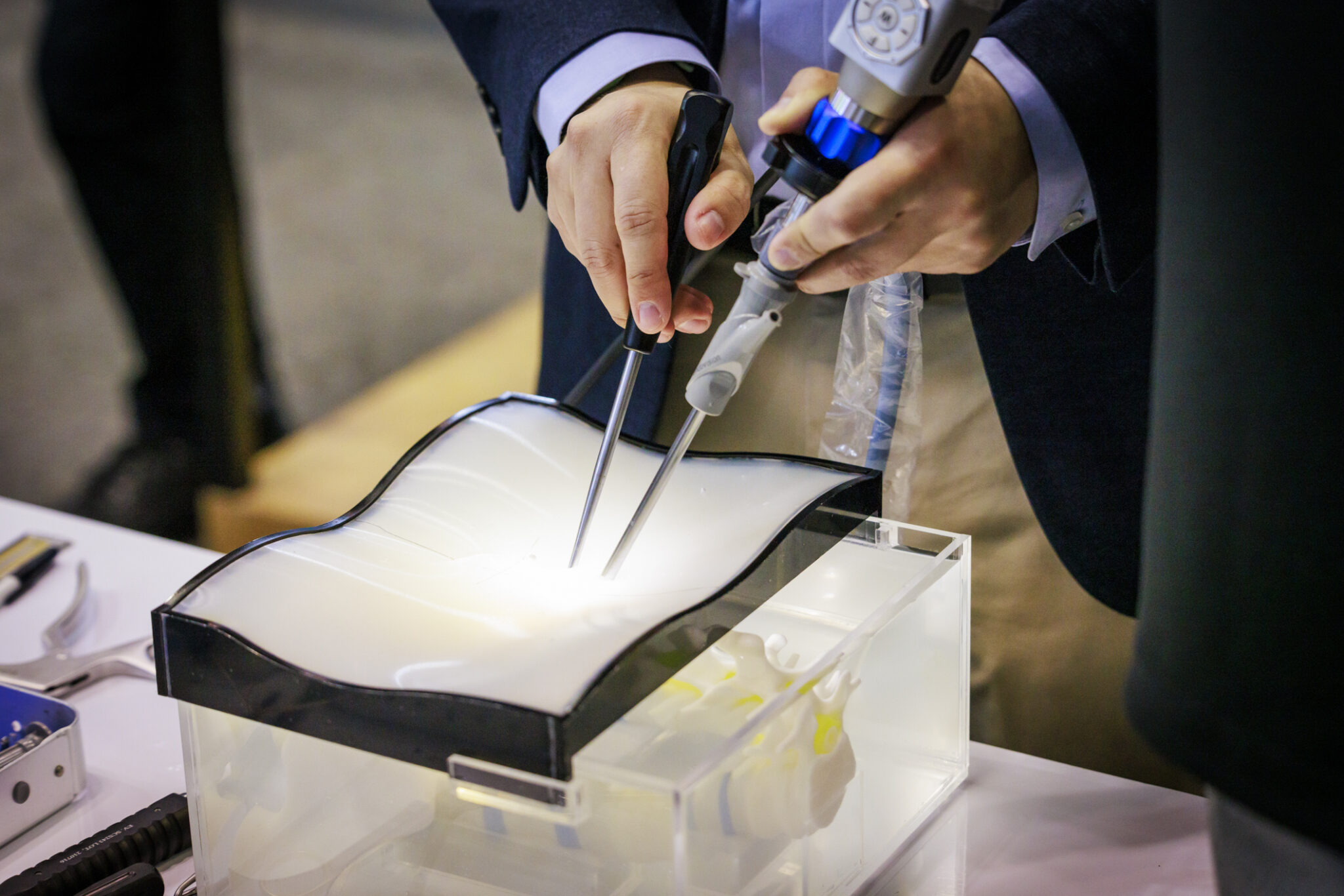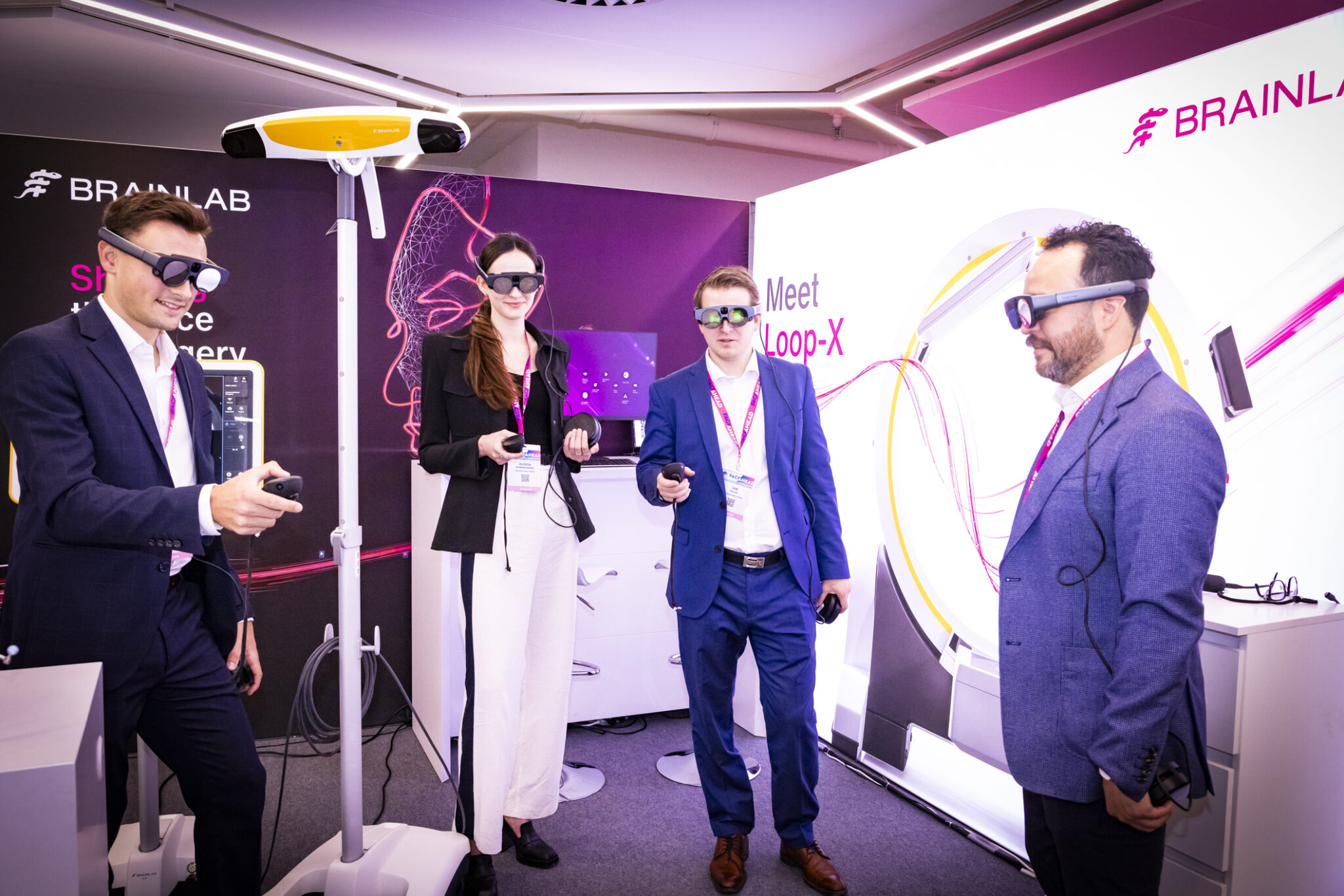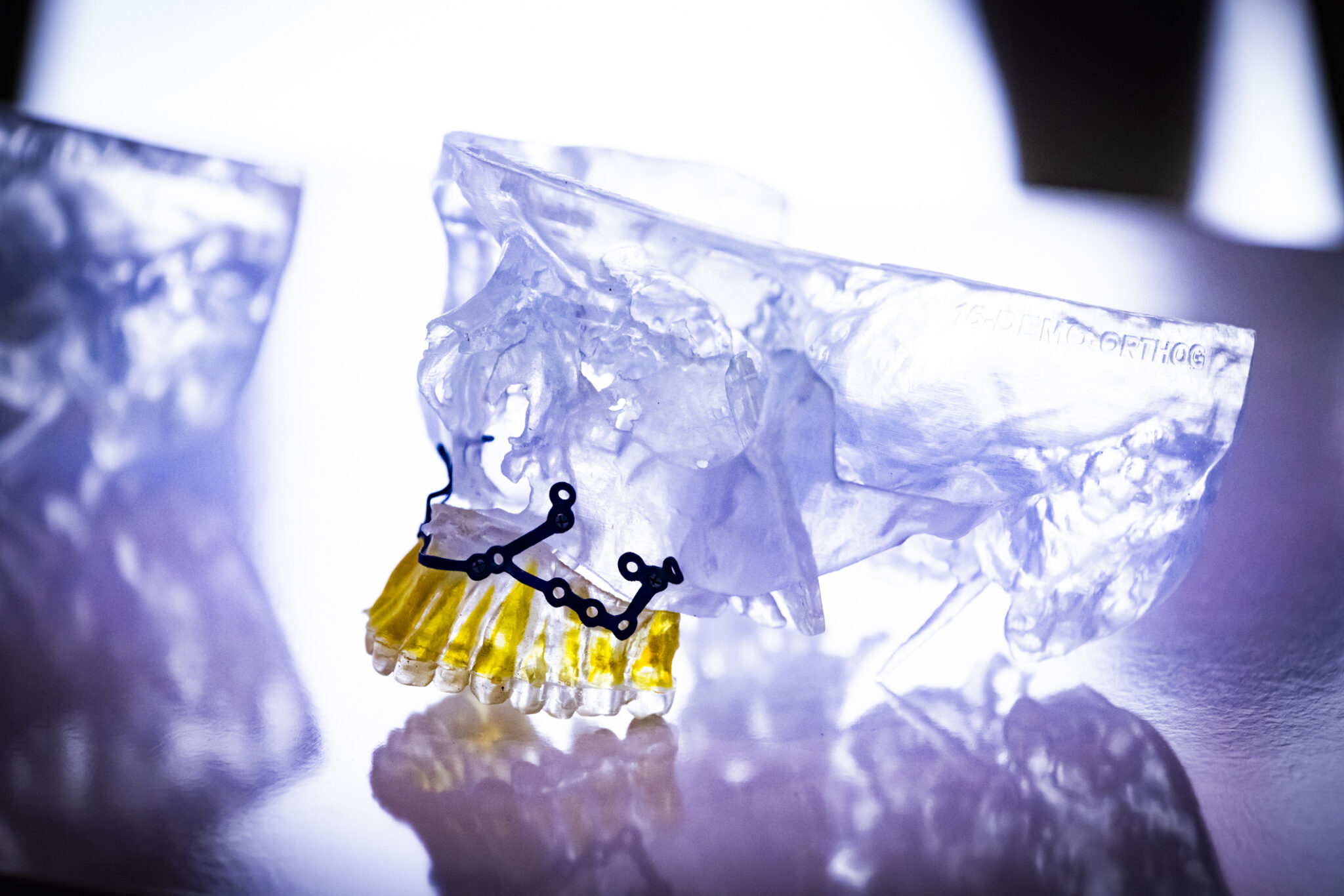The future of congresses: Immersive experiences, personalisation, and new technologies
Imagine a congress that goes beyond slides and lectures, one that immerses you in a personalised, interactive, and tech-driven experience. This is not the distant future. It’s already here.
Digital evolution is transforming medical-scientific events into far more than professional updates. Augmented reality, artificial intelligence, robotics, and big data are redefining how healthcare professionals learn, collaborate, and exchange knowledge.
But which technologies are already making a difference? And how can they improve the experience of those attending medical congresses and conferences?
From lecture halls to augmented reality: immersive medical learning
Traditionally, medical congresses and conferences have been formal learning spaces focused on one-way knowledge delivery. Today, augmented reality (AR) and virtual reality (VR) are revolutionising education, offering immersive experiences that complement theoretical content.
Thanks to tools like Microsoft HoloLens, healthcare professionals can explore 3D anatomical models, simulate surgical procedures, and refine their skills in safe virtual environments. These technologies not only improve the quality of medical training but also allow practice without risks—reducing costs and enhancing safety.
Robotic surgery is already a well-established reality. Systems like the Da Vinci Surgical System enable extremely precise procedures, minimising complications and speeding up recovery times. The next frontier is even more ambitious: remote operations powered by telemedicine.
During the Expedition 71 mission, the “Robotic Surgery Tech Demo” tested robotic surgery techniques in microgravity. A miniature surgical robot, capable of remote or autonomous operation, was used to simulate procedures in space. The outcomes of this experiment may help develop advanced robotic systems valuable not only for future space missions, but also for performing surgeries in remote areas with limited specialist access.
AI & Big Data: personalised knowledge
Artificial intelligence is also reshaping medical congresses transforming content management and enhancing personalisation.
Advanced algorithms can analyse massive volumes of clinical data, identify emerging trends, predict disease progression, and even suggest personalised treatment paths. AI is already being used at events to interact with audiences in real time, answering questions and generating personalised reports based on participant interests.
But personalisation starts long before the event. Thanks to AI and big data, medical congress websites can tailor the user experience from the moment of registration, suggesting sessions, speakers, and content based on each participant’s preferences and professional background.
Social media and retargeting strategies play a key role in pre-event engagement, allowing organisers to share targeted updates and valuable content. Meanwhile, intelligent chatbots facilitate real-time support and communication. Once on site, personalised apps provide alerts about relevant sessions, enable speaker interaction, and enhance networking opportunities.
This not only increases the perceived value of the event but improves learning outcomes and the overall experience, turning every congress into a personalised growth journey.
Cognitive learning: how knowledge acquisition is evolving
Beyond technology, the way we learn is changing. Neuroscience shows that active engagement and interactivity foster more effective learning than passive information delivery. Tech-enhanced medical events improve memory retention and processing through:
- Gamification: Platforms like Kahoot! and Mentimeter turn educational sessions into playful experiences using quizzes, scores, and team challenges making learning more engaging and motivating.
- Adaptive Learning: Tools like Smart Sparrow and Coursera AI use machine learning algorithms to create customised learning paths, adjusting content and difficulty based on participant responses and knowledge levels.
- Neurofeedback & Biofeedback: EEG-based technologies like Emotiv allow participants to monitor their attention and stress levels in real time, receiving tailored stimuli to improve focus and optimise learning during congress sessions.
These tools pave the way for smarter, more personalised learning, improving training quality and enhancing long-term competency.
The future is now: how to seize the opportunity
The integration of new technologies into medical-scientific events offers extraordinary potential, but their true impact depends on a mindful, strategic approach. As we’ve seen, tools like AI, AR, and digital engagement can turn a traditional congress into a compelling and attractive experience, boosting attendance and reinforcing the visibility of the organising scientific society.
However, not every tool fits every context. The success of an event depends on clearly defined goals, a deep understanding of the target audience, and a strong vision. Choosing the right technologies means enhancing scientific content, radically improving the participant experience, and delivering measurable returns in awareness and engagement.
In this evolving landscape, partnering with a Professional Congress Organizer who is up to date with the latest trends and deeply rooted in the medical-scientific sector is key.
It ensures expert guidance, combining innovation, strategy, and real needs to turn every event into a truly extraordinary opportunity.


